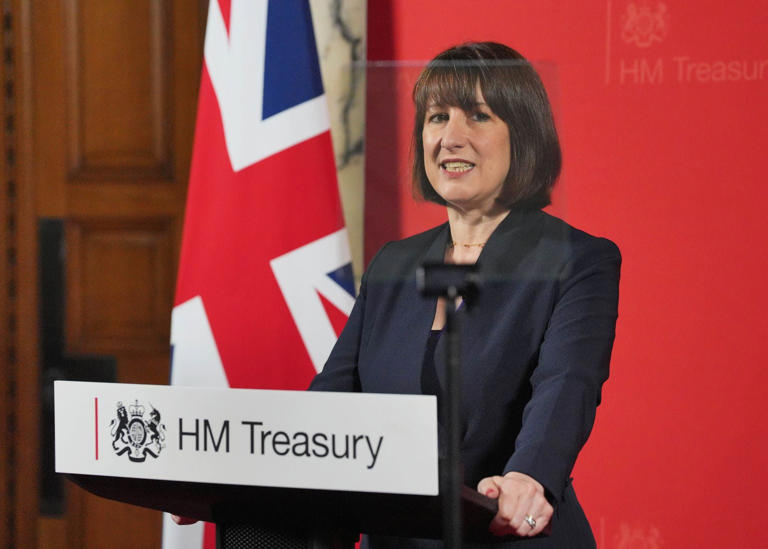On Monday, Chancellor Rachel Reeves is poised to reveal a comprehensive plan to address a significant fiscal shortfall, estimated to be around £20 billion. This disclosure will mark a pivotal moment as she outlines the immediate steps her administration will take to restore economic stability, following an audit that has highlighted considerable overspending by the previous government.
Unveiling the Fiscal Challenge
In her forthcoming address, Reeves will detail the financial predicament inherited from the previous Conservative administration. According to her, the previous government not only overspent but did so without adequate funding, leaving the nation with a substantial fiscal deficit. This situation stems from a series of unfunded promises and budgetary mismanagement. Reeves has characterized the previous administration’s handling of the public finances as misleading, accusing them of obscuring the true extent of the financial issues. She argues that the previous government avoided making necessary tough decisions and failed to present an honest account of the nation’s financial health.
The Chancellor’s announcement will also include the date for her first autumn Budget, which will set the stage for her planned economic interventions and outline her strategy for addressing the inherited financial challenges.
Introduction of the Office of Value for Money
To tackle the identified fiscal challenges, Reeves will introduce a new Office of Value for Money, a key promise from Labour’s manifesto. This new office is tasked with conducting a thorough review of government spending to identify areas where cost savings can be achieved. The objective is to enhance efficiency and prevent further expenditures that do not deliver adequate value for money. By focusing on eliminating waste and improving the management of public resources, the Office of Value for Money aims to ensure that taxpayer funds are used more effectively.
Reeves’ plans include significant reforms aimed at reducing inefficiencies in the public sector. This will involve curbing non-essential spending on consultants, selling off surplus government properties, and accelerating efforts to streamline administrative processes within government departments. These measures are intended to help manage the current budget shortfall and lay the groundwork for more prudent financial management in the future.
Public Sector Pay Increases and Infrastructure Project Cuts
In addition to these measures, Reeves is expected to approve above-inflation pay increases for public sector workers, including teachers and approximately 1.3 million NHS staff. Independent pay review bodies have recommended a 5.5% pay rise, which could result in an additional expenditure of about £3.5 billion over and above the existing budget provisions. This figure could potentially rise to around £10 billion if similar increases are applied to other public sector workers, including police officers, prison staff, and medical professionals.
The unbudgeted nature of these pay increases means that Reeves will need to find ways to fund them, potentially through adjustments in fiscal policies, reallocation of existing resources, or new tax measures.
Furthermore, reports indicate that Reeves will announce reductions or cancellations of several infrastructure projects. Among the projects under scrutiny are the £500 million Restoring Your Railway Fund, the A27 Arundel bypass, and a proposed £1.7 billion tunnel under the Stonehenge monument. The decision to cut back on these projects reflects the government’s need to prioritize immediate fiscal stability over long-term infrastructure investments.
Political Responses and Future Fiscal Strategy
The anticipated budget cuts have drawn criticism from various quarters, including SNP Westminster leader Stephen Flynn. Flynn has urged Reeves not to follow in the footsteps of previous austerity measures, which he argues have already placed considerable strain on public services. He advocates for increased funding to support essential services rather than imposing further budget constraints.
In addition to addressing immediate fiscal issues, Reeves will confirm that an Office for Budget Responsibility (OBR) forecast has been commissioned. This forecast will be released in conjunction with the forthcoming Budget and spending review later this year, providing a detailed projection of the nation’s financial outlook. Furthermore, Reeves will commit to holding one major fiscal event annually to ensure greater predictability and transparency in economic planning. This commitment will be backed by the Budget Responsibility Bill, introduced during the King’s Speech, which requires that any significant and permanent changes to tax and spending, exceeding 1% of the UK’s GDP, be submitted for evaluation by the OBR.
Through these measures, Reeves aims to establish a more transparent and responsible approach to economic management, focusing on restoring stability and laying the groundwork for sustainable growth. Her plans signal a shift towards a more accountable and systematic handling of public finances, with an emphasis on fiscal prudence and long-term economic health.
